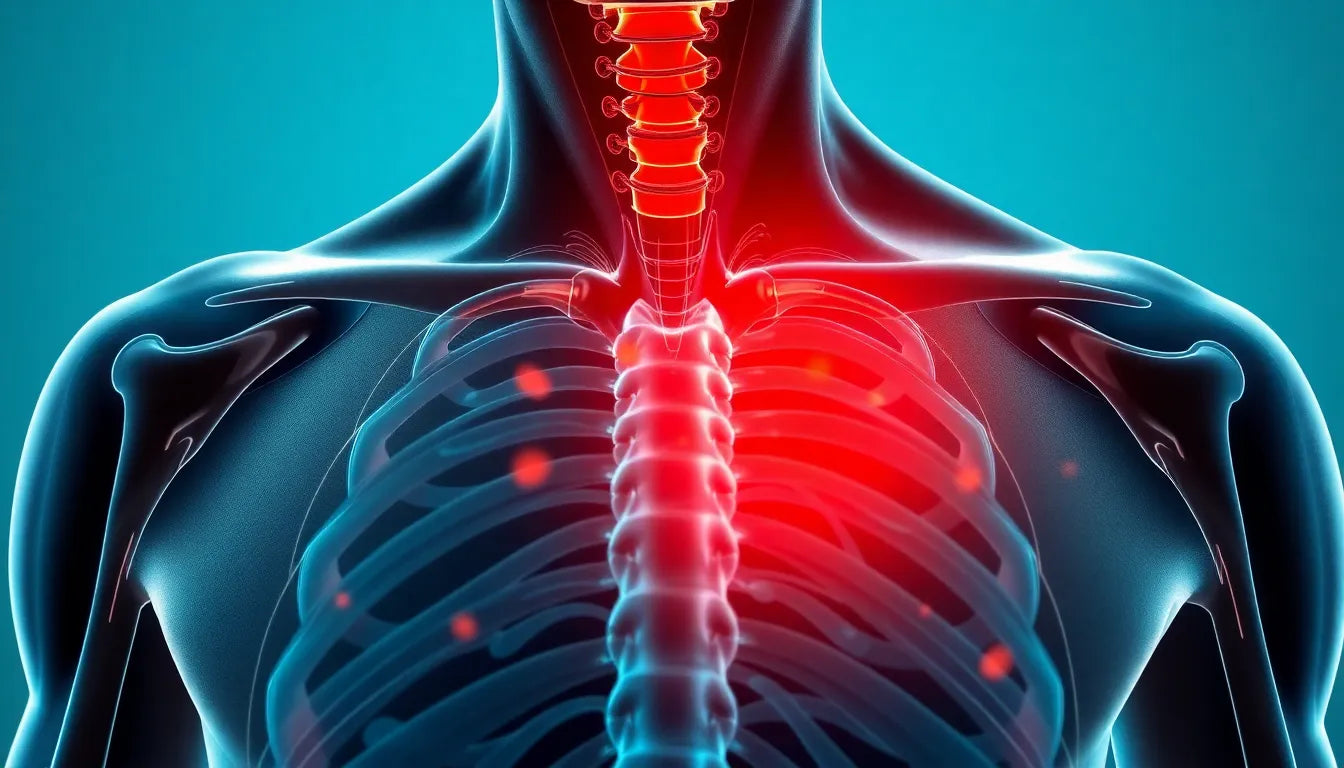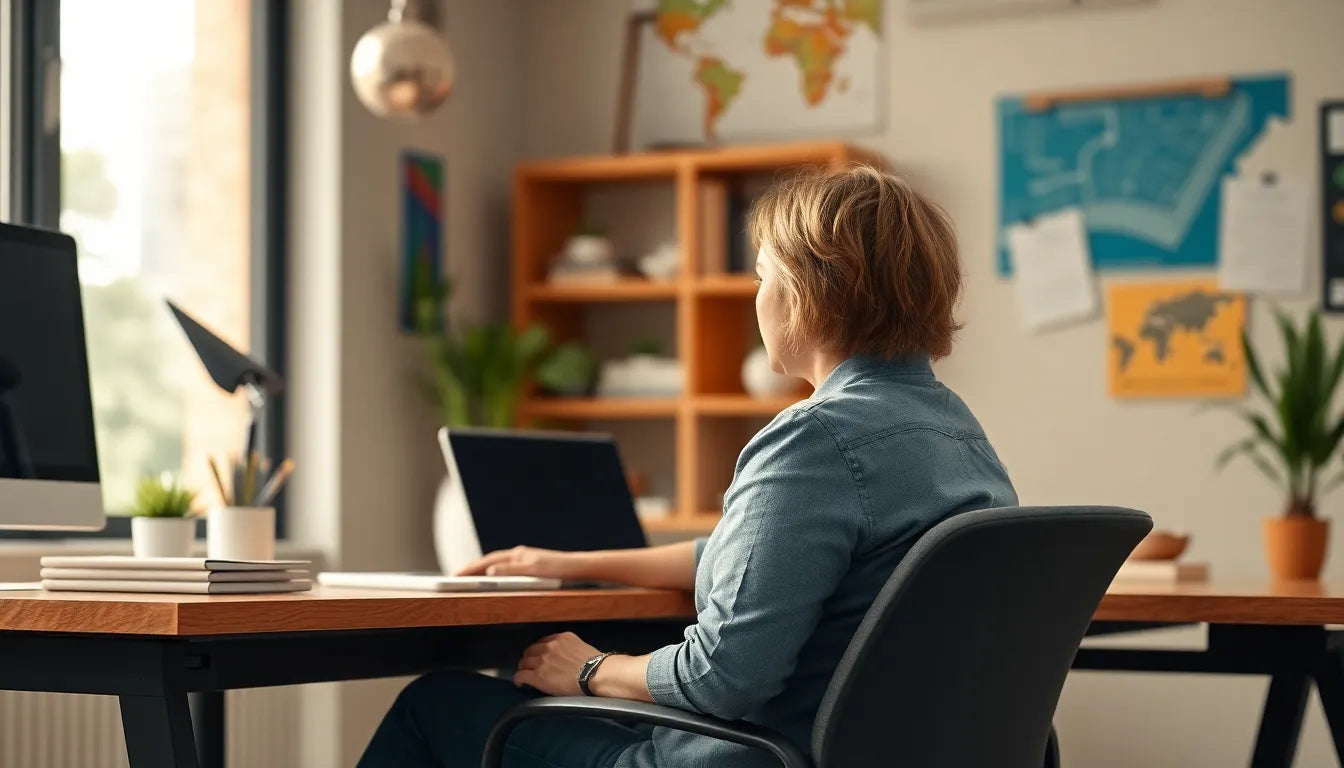For many, the connection between forstoppelse (constipation) and ondt i ryggen (back pain) might seem far-fetched, yet it is a reality for numerous individuals. These two seemingly unrelated issues can indeed be interlinked, often affecting people without them realizing the underlying cause. Understanding this connection is crucial for those who find themselves struggling with persistent back pain that seems to have no clear origin.
understanding the problem: how constipation affects the back
Constipation can lead to back pain, particularly in the lower back region. This occurs when the intestines become filled and irritated, exerting pressure on the spine and surrounding nerves. The discomfort is not just a result of the physical pressure but also involves the autonomic nervous system. This complex network manages both digestive and back functions, and any disruption can lead to significant pain.
When the intestines are backed up, they can create a domino effect of discomfort. The pressure from the accumulated waste can push against the spine, causing stiffness and even sharp pains. Additionally, the autonomic nervous system, which plays a dual role in gut and back function, can exacerbate pain. This system's overactivity or irritation during constipation can lead to heightened pain sensations in the back.
the role of the autonomic nervous system
The autonomic nervous system is a critical player in both digestive health and back pain. It regulates many involuntary bodily functions, including digestion and the response to pain stimuli. When constipation occurs, this system can become overactive or irritated, leading to increased sensitivity and pain in the back. This connection highlights the importance of addressing digestive health to alleviate back pain.
Individuals experiencing both constipation and back pain may not immediately see the link between the two. However, understanding that the pressure from the intestines can directly affect the spine and nerves provides a clearer picture of why these symptoms often occur together. By recognizing this connection, individuals can take steps to address both issues simultaneously, potentially finding relief from their back pain through improved digestive health.
exploring the connection between constipation and back pain
Understanding the physiological relationship between constipation and back pain is crucial in addressing these symptoms effectively. When the intestines are filled with waste, they can exert significant pressure on the lower back, leading to discomfort. This pressure can irritate the nerves and muscles surrounding the spine, resulting in pain that ranges from mild to severe. The autonomic nervous system, which regulates both digestive functions and pain response, plays a pivotal role in this process. When disrupted, it can amplify the sensation of pain, making the back feel more sensitive and uncomfortable.
recognizing the symptoms
Identifying the symptoms associated with constipation and its impact on back pain can help in early intervention. Common indicators of constipation include bloating, hard stools, and infrequent bowel movements. As constipation progresses, it can lead to additional symptoms such as back stiffness and sharp pains, particularly during movement. These symptoms are often accompanied by mechanical tension and movement restrictions in the back, which can exacerbate the pain. Recognizing these signs early can aid in addressing the root cause, potentially alleviating back pain through improved digestive health.
lifestyle factors contributing to constipation and back pain
Lifestyle choices play a significant role in the development of constipation and associated back pain. A sedentary lifestyle, poor dietary habits, and stress are major contributors. Inactivity can slow down peristalsis, the wave-like muscle contractions that move food through the digestive tract, leading to constipation. Similarly, a diet low in fiber can result in hard stools and infrequent bowel movements. Stress, on the other hand, can disrupt the autonomic nervous system, further reducing digestive efficiency. These factors combined can create a cycle of discomfort and pain that affects both the digestive and musculoskeletal systems.
impact of medications on digestive health
Medications can also play a role in exacerbating constipation and back pain. Certain drugs, such as antacids and some pain medications, can slow down intestinal movement, leading to constipation. This can increase pressure on the spine and nerves, resulting in back pain. Being aware of these potential side effects is important for individuals who are already prone to digestive issues. Consulting with a healthcare provider about alternative medications or solutions can help mitigate these effects and improve overall well-being.
real-life stories and case studies
At Anodyne, we have encountered numerous cases where individuals with busy lifestyles unknowingly suffered from constipation-related back pain. One such case involved a professional in her mid-30s who experienced persistent lower back pain despite leading an active lifestyle. Upon further investigation, it was discovered that her dietary habits and stress levels were contributing to undiagnosed constipation. By addressing her digestive health through dietary changes and stress management, she experienced significant relief from her back pain. These real-life stories highlight the importance of considering digestive health in the management of back pain.
Understanding the connection between constipation and back pain is the first step toward finding relief. By recognizing the symptoms, addressing lifestyle factors, and being mindful of medication impacts, individuals can take proactive steps to improve their digestive health and alleviate back pain. In the next section, we will explore various treatment and prevention strategies to help manage these conditions effectively.
effective treatment and prevention strategies for constipation-related back pain
Addressing the dual issues of forstoppelse and ondt i ryggen requires a comprehensive approach that combines lifestyle changes, medical interventions, and alternative therapies. Understanding and implementing these strategies can help alleviate discomfort and improve overall well-being.
lifestyle changes: diet and exercise
One of the most effective ways to combat constipation and associated back pain is through lifestyle modifications. Increasing dietary fiber intake is crucial, as fiber helps to soften stools and promote regular bowel movements. Incorporating whole grains, fruits, vegetables, and legumes into your diet can significantly improve digestive health. Alongside dietary changes, staying hydrated by drinking plenty of water is essential to keep the digestive system functioning smoothly.
Regular physical activity is equally important. Engaging in exercises such as walking, yoga, or light aerobic workouts can stimulate intestinal movement, reducing the likelihood of constipation. These activities also help strengthen the core muscles, providing better support for the back and potentially reducing pain.

Men's Posture Shirt™ - Black
Patented shirt activates muscles, improves posture, and helps relieve pain and tension.
physical therapy and osteopathy
Physical therapy can be an invaluable tool in managing back pain associated with constipation. Therapists can provide exercises that enhance flexibility, improve posture, and strengthen the back muscles. These exercises can alleviate tension and improve overall spinal health.

Lumbar support belt
Adjustable lumbar belt provides targeted relief and support for lower back pain.
Osteopathy offers a holistic approach by focusing on the body's musculoskeletal system. Osteopathic treatments aim to improve blood circulation and promote relaxation, which can break the cycle of pain in the nervous system and muscles. By addressing both the digestive and musculoskeletal systems, osteopathy can provide comprehensive relief.
medical and alternative treatments
For those experiencing persistent symptoms, medical interventions may be necessary. Peristalsis-enhancing agents and osmotic laxatives can aid in relieving constipation by promoting bowel movements. However, it is important to consult with a healthcare professional before starting any medication to ensure it is appropriate for your specific condition.
Alternative therapies, such as acupuncture and chiropractic care, might also offer relief. These treatments focus on balancing the body's energy and aligning the spine, which can reduce tension and improve overall function.
important considerations
While lifestyle changes and therapies can be effective, it is important to seek medical evaluation if back pain persists or if there is a suspicion of severe constipation. This ensures that more serious underlying conditions are ruled out and that appropriate treatment is provided.
frequently asked questions
can constipation really cause back pain?
Yes, constipation can lead to back pain, especially in the lower back, due to pressure from the intestines on the spine and nerves.
what are the main symptoms of constipation-related back pain?
Common symptoms include bloating, hard stools, back stiffness, and sharp pains during movement.
how can lifestyle changes help alleviate these symptoms?
Increasing fiber and fluid intake, engaging in regular physical activity, and adopting good toilet habits can significantly relieve symptoms.
when should I see a doctor about constipation and back pain?
It’s advisable to consult a doctor if the pain persists or if you suspect severe constipation to exclude more serious health issues.
are there any specific exercises that can help?
Yes, light exercises focusing on mobility and relaxation for both the gut and back are beneficial. Consulting with a physical therapist or osteopath can provide tailored exercises.
























